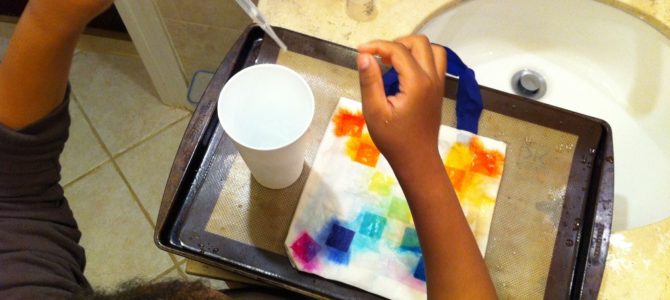
As schools across America close to slow the spread of the COVID-19 virus, those of us in the homeschool community—perennial outsiders that we are—are a little giddy over our sudden mainstream status.


As amusing as these memes are (and believe me, homeschoolers find them amusing), there’s just one problem: they’re not exactly true.
Yes, if you have school-age children who are spending the next few weeks at home, in many ways your life is going to look a lot more like ours. But let me acknowledge something from the outset: your task isn’t exactly the same as homeschooling.
You didn’t get to plan ahead and structure your life for this; we did. Your school year has been significantly disrupted; ours hasn’t. Perhaps most significantly, and contrary to myth, “social distancing” isn’t the norm for homeschoolers. We have co-ops, clubs, and events that have been cancelled for coronavirus too. The next few weeks are going to be hard on all of us.
So, given the unique features of this crisis, I’m not here to give my typical “how to homeschool” advice. As you adjust to this sudden lifestyle change, the last thing you need to do is research your state’s homeschool laws, set big-picture educational goals, or choose a comprehensive curriculum, which most homeschoolers would have months to consider and a full school year to execute.
Instead, let me give you a few simple ideas—informed by decades of homeschool experience—that will help you and your kids make the most of your weeks at home together.
1. Don’t Think You Have to Fill Your Day with Academics
One of the first things I tell new homeschoolers often surprises them: for young children, homeschooling doesn’t take much time. When my kids were in kindergarten through third grade, their academic day usually didn’t last longer than two hours. When instruction is individualized and interstitial classroom time eliminated, it’s very easy to give your students all the book learning they need before lunch time. (Older students will take more time, but their day is still comparatively streamlined.)
So unless your child’s school has assigned an obscene amount of mandatory homework, don’t plan to work on academics for the same length of time as he or she typically spends in school. Embrace the freedom of sleeping in and having more time for learning through play.
2. Make the World Your Classroom
The real “secret sauce” of homeschooling, especially for younger children, isn’t so much a method as a mindset. Homeschoolers don’t look at education as something that happens within the bounds of a book or a building. Our approach is to integrate learning with life, looking for educational opportunities in everyday outings and experiences.
This can be as simple as putting up a bird feeder outside your kitchen window and helping your kids identify birds, or going on nature walks and observing different types of trees as they bloom. Since it’s springtime in North America, this is a great opportunity to get outside together and enjoy the natural world.
If you have an available spot for a small outdoor garden, or even a sunny windowsill, your kids could learn about botany by growing some seeds. Although access to museums may be limited due to COVID-19, many historical buildings or battlefields lend themselves to an open-air ramble or driving tour.
Be creative, have fun, and remember that your goal isn’t encyclopedic knowledge or complete mastery of the subject matter. You’re trying to spark your children’s imagination and curiosity so the subject comes alive, and learning becomes a lifestyle.
3. Read, Read, Read
One of the most valuable things I’ve done in 13 years of homeschooling is to read aloud with my children every day, even when they got older. For us, this works best first thing in morning, but feel free to experiment and find the time that works best for your family.
If you and your kids are new to reading aloud, I’d suggest fighting the urge to be too ambitious with an overly difficult book. Choose something you read and cherished as a child, a favorite book that captured your imagination. (This has added relationship value, as you share a treasured memory with your children.) Once you establish the rhythms of reading together, you can challenge them with more difficult books than they would otherwise be able to read independently.
The academic and relationship benefits of reading together are innumerable. All of my children are natural writers today, and I credit much of that to our daily habit of reading aloud.
4. Use This Time to Teach Life Skills
For older children, this sudden school closure strikes me as the perfect time to impart life skills they won’t learn in school. Children in upper elementary grades and older can learn how to cook a meal, do a load of laundry, wash the dishes, and clean a bathroom. Middle schoolers and high schoolers can learn the basics of planning meals, writing grocery lists, household budgeting, mowing the lawn, and changing a flat tire.
Beyond household management, parents can draw on their hobbies and work skills and teach sewing, carpentry, art, or computing. If you have a skill that serves you in life that your child is able to learn, now is a great time to teach it. Why spend these weeks duplicating classroom academics when you can give them something useful and completely new?
5. Channel Your Inner ‘80s Parent
This season of “social distancing” gives all of us a chance to let our kids experience the gift of unstructured time. Modern parents are so prone to overscheduling our kids’ lives that the sudden cancellation of activities and events feels jarring. Yet it’s a rare opportunity—maybe the only one we’ll get in our lifetimes—to have a few weeks at home without much to do.
Think of it as a trip in a time machine back to your childhood. Remember the things you used to do to amuse yourself during the long, pre-internet summer days. Send your kids outside to play, and tell them not to come in until dinner. Show them how to make daisy chains, let them dig in the mud, and let them toss a ball around. Let them get bored. It’s good for them!
Then, once the dust has settled and the health crisis is past, consider homeschooling for real. You may have realized that the flexibility, creativity, and customizability of home education is just right for your family—and that it protects your kids from dangers beyond just a virus. Or maybe you’ll weep with joy upon the return of the school bus. Either way, these weeks will have been well spent.









